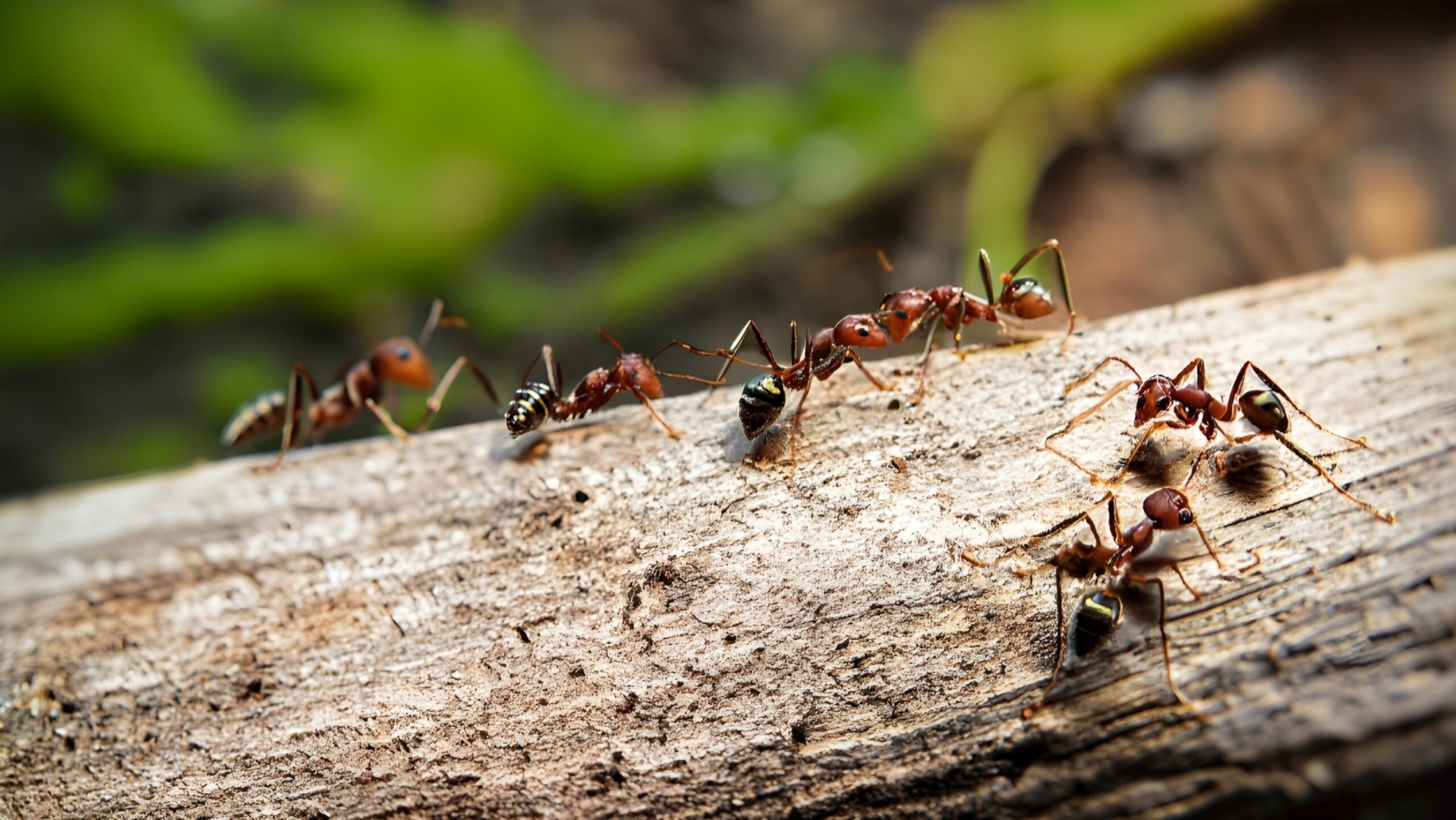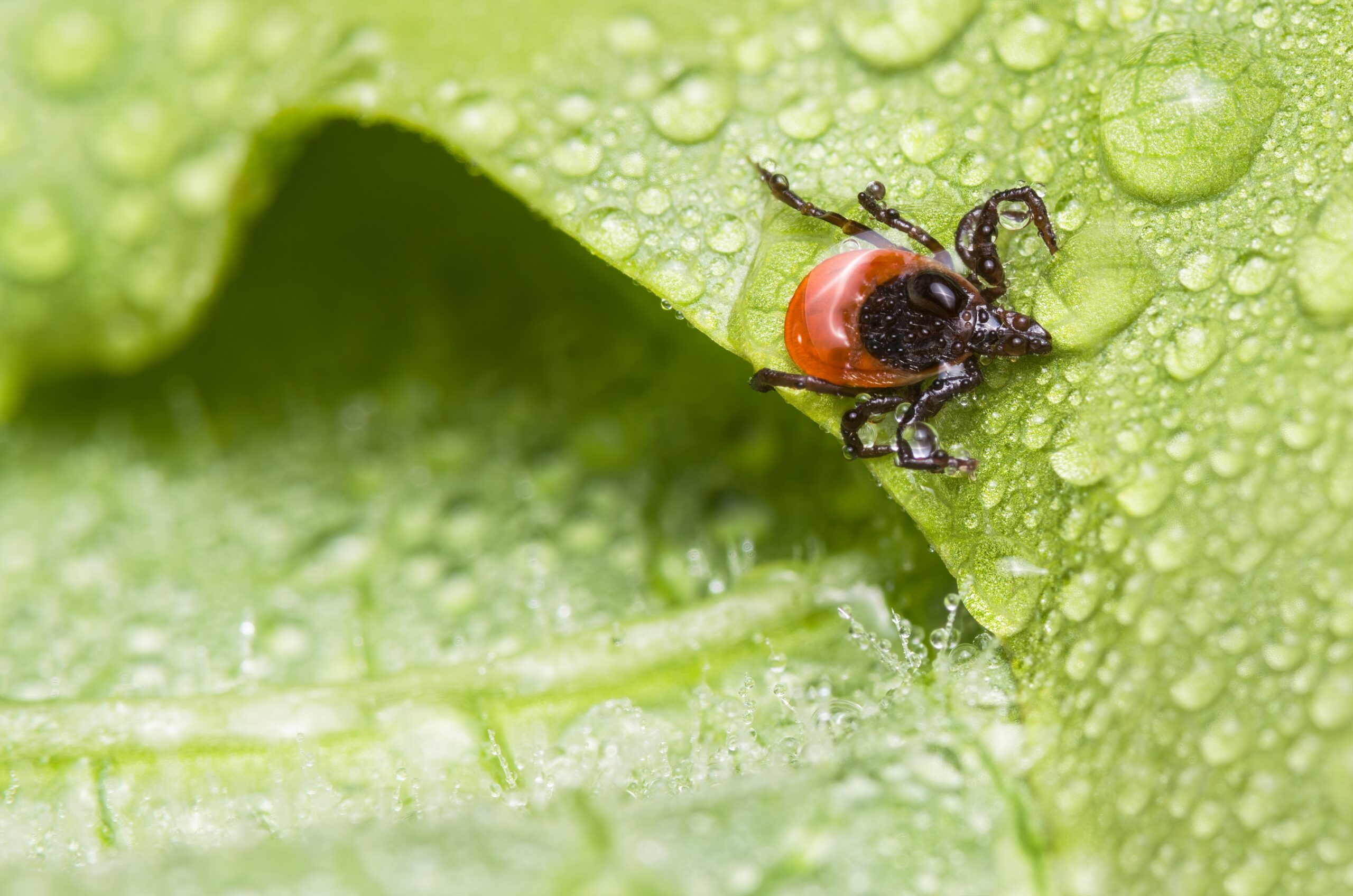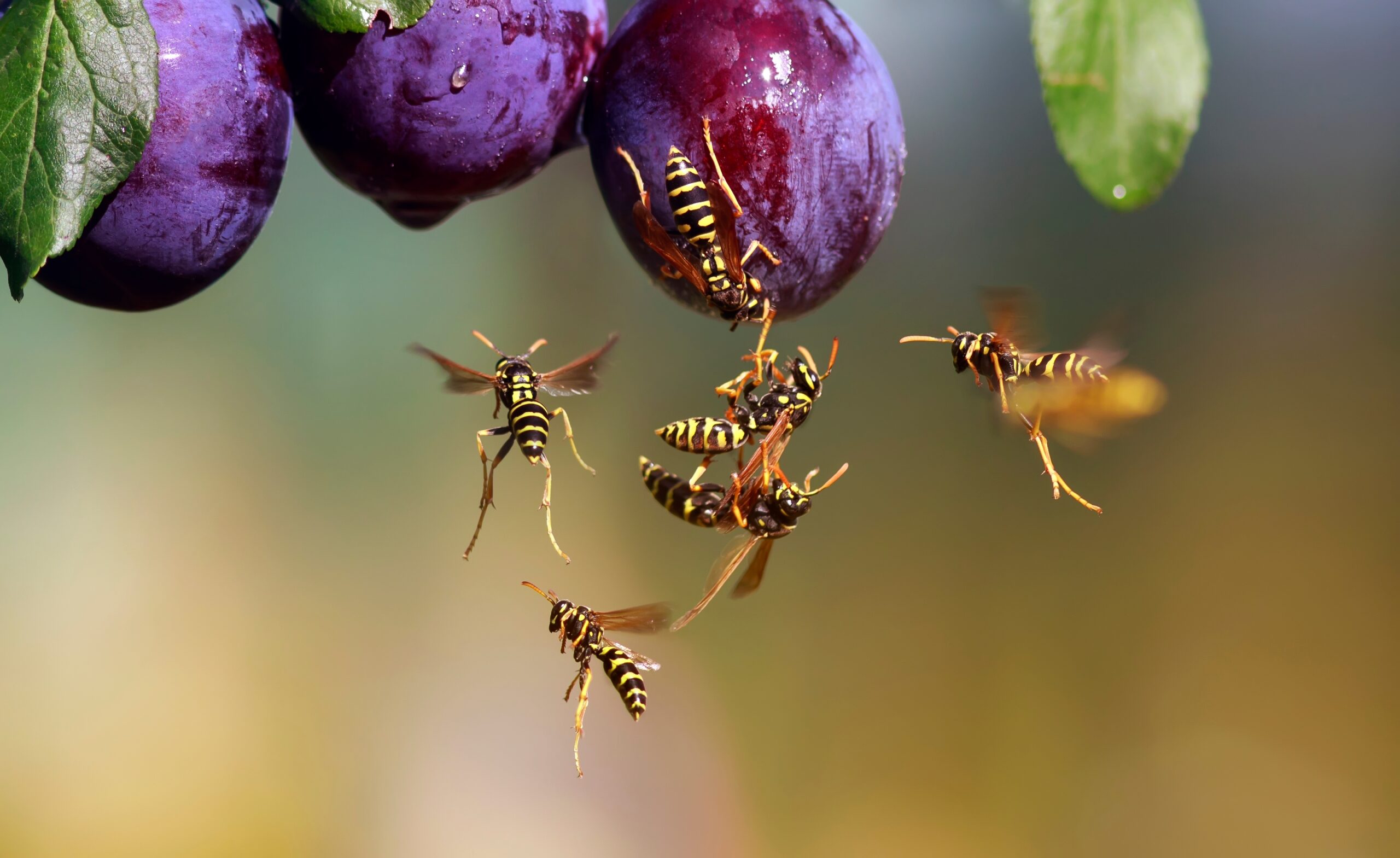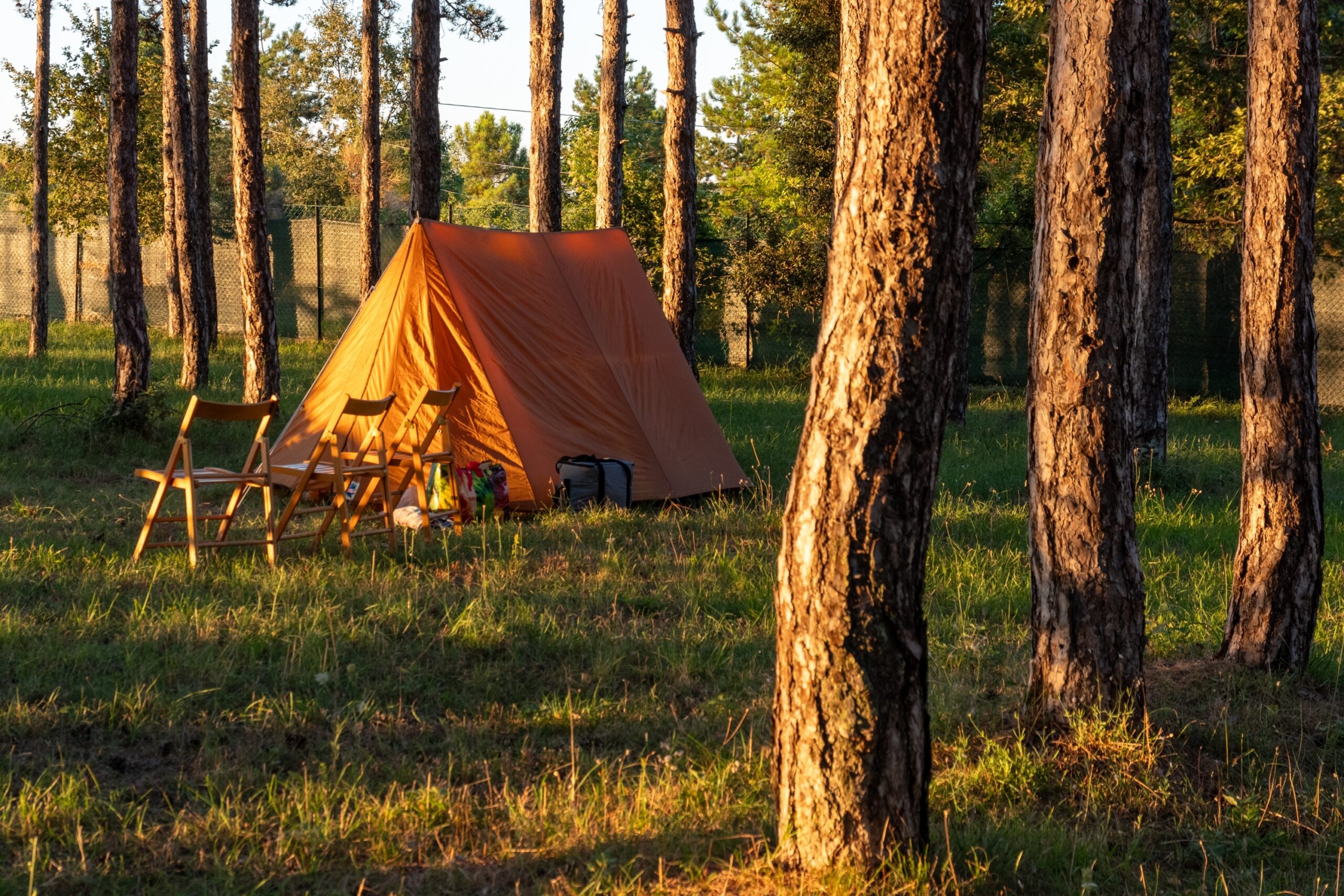5 Campsite Pests That Ruin Your Outdoor Fun
5 Campsite Pests That Ruin Your Outdoor Fun
Summary: Camping is a great summer activity, but there’s a high risk of being bugged by pests when your campsite is in the middle of their habitat. This blog lists the 5 most common camping pests and why they might be drawn to a certain campsite. The 5 campsite pests are mosquitoes, ants, spiders, ticks, and stinging insects. Campers are encouraged to implement the 8 prevention methods that work against these campsite pests without disrupting your camping trip. Green Pest Services is promoted as a reliable choice for residential and commercial pest control services.
One of the most popular summertime activities, camping is a great way to immerse yourself in nature. Waking up surrounded by the chirps of local birds, going on a hike around the campsite, eating s’mores around the campfire…there’s nothing better! Sadly, the thrill quickly wears off when your camping adventures are ruined by an army of creepy-crawlies.
The typical campsite is in the heart of insect territory, but that doesn’t mean you can’t take the steps to prevent them from taking over your camping spot. Let’s discuss five of the most common camping pests and the easiest ways you can prevent them from ruining all of your fun.
Mosquitoes

If we were to guess the first pest that popped into your head when we said “camping pests,” it would be the mosquito. This insect is only truly active in the summer because it thrives in the heat and humidity. Specifically, mosquitoes are usually found near still water since female mosquitoes need fresh water for their eggs. If you’re camping or hiking near a body of water, you’ll probably see more mosquitoes than usual.
Even if your camping site is away from the water, you’re still at risk of seeing mosquitoes. They hide in thick brush to rest, and male mosquitoes survive on flower nectar. Female mosquitoes need our blood in order to produce eggs, hence why they’re relentless in their hunt. They find us by detecting our body heat, sweat, and carbon dioxide output. Mosquito bites can be more than just itchy; if they previously bit an infected mammal, they can transfer the disease through their saliva. The most common ones are West Nile virus, malaria, and Zika virus.
Ants

Half the fun of camping is the food (S’mores! Sandwiches! Bitter coffee!), but it’s unfortunately easy to attract ants to your campsite once you start eating. They’re drawn to any food or drink, and items that are heavy in protein or sugar are the most appealing. After all, these pests need plenty of energy to care for their growing colonies! At a campsite, you might see a trail of ants marching towards meat, grease, sugary drinks, and dry pet food.
When the worker ants find a safe food source, they lead the rest of their forces to the same spot by leaving a trail of pheromones, or scent chemicals. You never want this process to even start because ants that follow a pheromone trail to food are relentless. The invasion is much worse if your site is near or on top of an anthill, so tread carefully here. We recommend never eating in your sleeping area. Waking up to an army of ants marching across your sleeping bag isn’t the type of wakeup call we ever want!
Spiders

There’s one important fact about spiders to keep in mind: where there are bugs, spiders are sure to follow. They need to live where they have a steady food source, and since they eat insects, spiders are almost always found near an active bug population. Web-building spiders choose isolated spaces for their webs, while hunting spiders seek out shaded dry areas for their hiding spots in between their adventures.
The bad news is that tents and cabins both make for excellent spider shelters, especially in the dead of summer. But the good news is that spiders don’t want anything to do with us, so they won’t actively choose to come near us. Make sure your tent or cabin is completely sealed, especially if you notice a lot of other pests near your site. Also, we suggest never touching a spider with your bare hands. Some spiders bite when handled, and the black widow and brown recluse are two of the most dangerous U.S. species. If you or anyone else is bitten by one of these types, please seek medical attention immediately.
Ticks

Ticks are the worst in summer, which is truly unfortunate since that’s when we spend the most time outside! But that reason is exactly why ticks are so active now: they have a steady food supply. They hide in tall grass and overgrown bush until a mammal comes close enough for the tick to crawl onto their new host. Since they can’t fly or jump, ticks can only feed when they are lucky enough to find a warm-blooded creature in their path.
Adult ticks feed for up to a week, sinking their mouthparts into their host in a protected area (neck, ankle, etc.). Once the tick is full, it drops away from its host and digests its meal. Female ticks use this time to lay thousands of eggs. Ticks, like mosquitoes, can transmit diseases while feeding. Lyme disease is the most frequent one, and it’s common in the Northeastern states. Throughout your camping trip, check yourself and everyone else (including pets) daily for ticks.
Stinging Insects

Whether we’re at a backyard barbecue or a campsite, stinging insects are one of the most common summer pests across the country. The high temperatures give them more energy, and there’s enough flowers and other insects to act as their food sources. All stinging pests love sugar since it reminds them of flower nectar. This is why we usually see them buzzing around our sodas, juices, fruit, and desserts at the campsite.
The nesting sites vary with the species. For example, yellow jackets nest on the ground (watch where you step!) and wasps often nest in trees and fence posts. But no matter where they live, all stinging insects are extremely territorial with their nests. You don’t want to disturb a nest or kill a stinging insect near its home. The workers release “alarm” pheromones when their colony is threatened, which causes a sudden swarm of angry insects! If you or anyone in your party is allergic to stinging insects, take extra care in avoiding any type of nest or hive on your camping trip.
A Pest-Free Campsite

We can’t promise that you won’t come across any bugs while you’re camping because — well, it kind of comes with the territory (literally). It’s also not worth the effort to smash every insect you find around the campsite if they’re not dangerous or bothersome. Honestly, the easiest way to keep pests away from your campsite is to take the steps in eliminating their attractions.
The most efficient ways to keep the pests away from your campsite are:
- Set up your tent in a good place. The “perfect” tent location is based on personal preference, but there are a few areas we recommend staying away from. Any space with overgrowth, tall grass, and still water should be avoided because they’re common pest habitats.
- Avoid any insect nests. Speaking of choosing your tent site well, we strongly recommend checking your site for any signs of insect nests. Bugs are very territorial with their homes and don’t like any disturbances. Wasps, bees, ants, and rodents often nest in the woods.
- Contain food and drinks. When you go camping, there’s always a lot of warnings about protecting your food from bears. Ants, stinging insects, and flies also love our food, so make sure to keep it all contained to protect your food from bears and bugs alike.
- Put trash in the proper receptacles. Littering is never a good choice, but if you needed one more reason not to leave your trash out, it attracts all kinds of pests. Make sure all of your trash makes it into the proper receptacles or dumpsters, or keep it in a bag in your car until you get back home.
- Build a campfire (ONLY if you’re allowed). If the campsite’s rules allow you, a campfire is a great way to keep pests away from your campsite. Smoke repels mosquitoes and stinging insects, so they won’t want to get too close. Keep an eye on the fire though!
- Use bug spray. You don’t have to douse yourself in your favorite bug spray (we actually recommend not doing that). But it’s a great idea to spray any exposed skin on your arms, legs, and neck before spending time outside to prevent mosquitoes and ticks.
- Don’t use strong scents. We understand the desire to smell good, but make sure your chosen scents won’t directly attract pests. Floral and sweet scents appeal to stinging insects while they’re searching for flowers, so avoid using those scents in your hygiene products.
- Cover your skin. An easy way to protect yourself from mosquitoes and ticks is to cover your skin. Wear close-toed shoes on hikes, and don’t sit in overgrown grass. If you’re camping in the middle of summer, you can still stay cool by choosing lightweight long-sleeved shirts.
Go Green & Protect Your Summer Adventures
We can’t travel with you on all of your camping trips — sorry to disappoint — but we can eliminate the pests on your own property! If you have a pest problem in your home or business, Green Pest Services is here to help. Our licensed technicians solve pest issues with the utmost care and efficiency. After inspecting the property for all signs of pest activity, we use our findings to create a treatment plan that is customized to fit your pest control dependable pest control services, contact us today!
Citations
Common campsite bugs. (n.d.). Maggie’s Farm. Retrieved July 30, 2024, from https://maggiesfarmproducts.com/blogs/bug-help/campsite-bugs
Danielson, B. (2020, February 19). 12 campfire critters: Harmless or harmful?. Readywise. Available at https://readywise.com/blogs/readywise-blog/12-campfire-critters-harmless-or-harmful (Accessed on July 30, 2024).
Eberl, K. (2022, August 19). 8 camping pests to watch out for. Family Handyman. Available at https://www.familyhandyman.com/list/camping-pests-to-watch-out-for/ (Accessed on July 30, 2024).
How to keep bugs away while camping and out of your tent. (2022, September 16). KOA. Retrieved July 30, 2024, from https://koa.com/blog/how-to-keep-bugs-away-while-camping-keep-insects-out-of-your-tent/
Enjoy a Pest-Free Year With These 10 Easy Steps
Enjoy a Pest-Free Year With These 10 Easy Steps Enjoy a Pest-Free Year With These 10 Easy Steps Summary: A practical guide to [...]
How Do Pests Contaminate Food?
How Do Pests Contaminate Food? How Do Pests Contaminate Food? Summary: A practical homeowner guide explaining how pests contaminate food through contact, saliva, [...]
The Clear Signs of Bed Bugs in Every Setting
The Clear Signs of Bed Bugs in Every Setting The Clear Signs of Bed Bugs in Every Setting Summary: A setting-by-setting guide to [...]
Odor is an Early Sign of Rodents, Here’s Why
Odor is an Early Sign of Rodents, Here’s Why Odor is an Early Sign of Rodents, Here’s Why Summary: Rodent odors are often [...]
Pest Prevention Tips for Snowy Days
Pest Prevention Tips for Snowy Days Pest Prevention Tips for Snowy Days Summary: Snowy weather pushes pests to seek warmth and shelter indoors, [...]
How Do Ants Spend Winter? What Homeowners Should Know About Ants in Winter
How Do Ants Spend Winter? What Homeowners Should Know About Ants in Winter How Do Ants Spend Winter? What Homeowners Should Know About Ants in [...]

